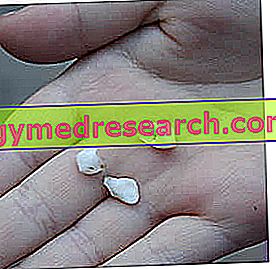What is Bromexina?
Bromexine is the derivative of an alkaloid, vascicin, extracted from the leaves of Adatoda ( Adhatoda vasica or Noce delle Indie), an Indian herbaceous plant, typical of Ayurveda, with bronchodilator and antitussive activity.

How does it work?
As anticipated, bromexine is a mucolytic; as such it favors the expulsion of the mucus that stagnates in the respiratory tract, making breathing easier: it is therefore indicated in the symptomatic treatment of fat cough and in disorders of the secretion during acute and chronic respiratory diseases (such as bronchitis). In this sense, bromexina acts by depolymerization of the proteins that make up the skeleton of catarrhal secretions (mucoproteins); it therefore promotes expectoration and reduces cough stimuli. Furthermore, bromhexine stimulates ciliary motility by promoting the removal of mucus from the respiratory tract.
Mode of use
Bromexine is well absorbed orally and has a half-life of about twelve hours; consequently, antitussive syrups containing it should be taken two or three times a day.
Side effects and contraindications
Since mucolytics can damage the mucus barrier that protects the gastric mucosa from acidic juices, bromhexine should be taken with caution by patients with a history of gastric ulcer.
Pregnancy and breastfeeding
The medicine has proven safe in pregnancy (category A); Bromhexine can therefore be taken by pregnant women in cases of actual need and in any case under direct medical supervision. Because bromhexine is excreted in breast milk, and its effects on the newborn are not known, its administration is not recommended during breastfeeding unless potential benefits for the nurse outweigh the possible risks to the infant.
Interactions
No significant interactions of bromhexine with other medicinal products are reported. Cases of gastrointestinal disorders and allergic reactions to the skin or mucous membranes have been reported very rarely following the intake of bromhexine.
For more information, read the Bisolvon Linctus ® Information Leaflet »



